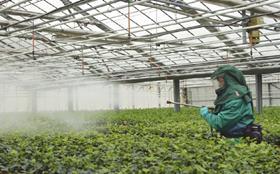
Restrictions on the use of crucial crop protection tools brought about by new European Union rules on pesticide approvals could harm the future development of agriculture in developing countries.
So said Dominic Dyer, CEO of the UK-based Crop Protection Association, who delivered the keynote speech at a meeting of senior representatives from the crop protection, agriculture and food production industries in Johannesburg, South Africa, last week.
Using the host country as an example, Mr Dyer explained how food production and exports – a key growth driver for nations such as South Africa – could be stifled by European food retailers placing additional restrictions on how the country's producers grow their crops to meet new EU pesticide rules.
'Although Europe is South Africa's biggest trade and investment partner, accounting for over 40 per cent of its imports and 30 per cent of its exports, EU policy-makers have failed to consider the impact of new EU pesticide legislation on South African agriculture and food exports,' Mr Dyer told the delegation.
'South Africa has been identified as a principal development partner for the EU and is earmarked to receive over €1bn in development aid over the next decade, and yet South African farmers and food producers could face losses in excess of this figure if they can no longer export their products to Europe,' he added.
Mr Dyer concluded that South Africa should be aided rather than restricted as the country looked to battle through the economic crisis.
'As South Africa struggles to cope with the global economic downturn and maintain economic growth to improve the living standards of a majority of its population living below the poverty line, the EU should be looking to increase trade and investment rather than placing additional barriers on food exports through an increasingly restrictive pesticide policy,' he noted.






No comments yet